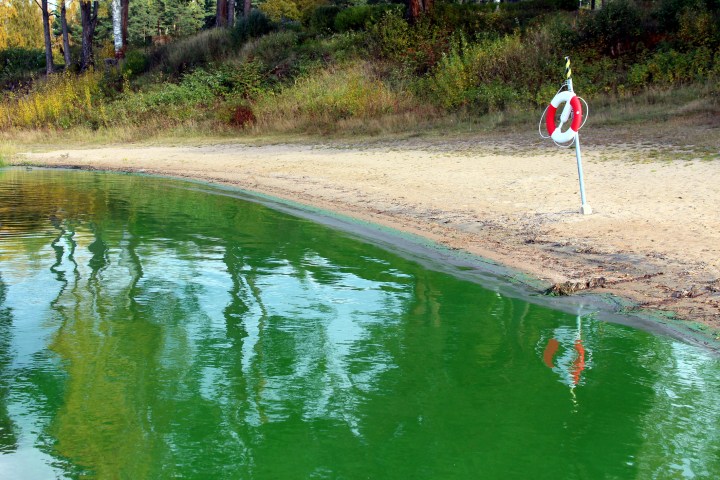These 15 Vermont Beaches Have Just Been Put On Advisory Due To Dangerous Bacteria
Bad news for summer bathers in Vermont – a number of beaches have been closed due to unsafe levels of toxic cyanobacteria.
According to the Vermont Department of Health, at least nine beaches in the state have tested positive for high levels of the dangerous microorganism and an additional six spots have tested positive for low levels of cyanobacteria.
Also known as blue-green algae due to the color it gives water, cyanobacteria gives off natural toxins called cyanotoxins that can lead to a range of health problems. Though the algae affects people in different ways, exposure can cause symptoms including sore throat, vomiting, skin irritation, fever, headache, liver damage, oral blistering, diarrhea, stomach pain, muscle pain, and eye irritation.
In the health department’s latest weekly report on July 12, 2019, the following beaches were placed on advisory for harboring large amounts of cyanobacteria with vivid green or cloudy water.
- Bald Hill Pond, Westmore
- Black Bridge, St. Albans Bay
- Texaco Beach, Burlington
- Button Bay South, Ferrisburgh
- Georgia Beach, Georgia
- Leddy Beach, Burlington
- Melville Landing, Georgia
- North Beach, Burlington
- Red Rocks Beach, South Burlington
A further six Vermont beaches and swimming spots have been placed on low alert, which means that small amounts of cyanobacteria have been detected.
- Burlington Inner Dock, Burlington
- Camp Kiniya, Colchester
- North Harbor, Ferrisburgh
- South Beach Road, South Burlington
- St. Albans Bay Park, St. Albans Town
- Tri-Town Road, Addison
There is some good news, however. Texaco Beach, North Beach and Leddy Beach in Burlington have been cleared for swimming as of July 15. However, it’s important to monitor changing water conditions and stay on dry land if anything about your swimming spot looks or smells off.
Click here to view the most current water condition report by the Vermont Department of Health. Please note that water conditions are constantly in flux and that you should check with authorities for the most accurate and up-to-date swimming safety information.
OnlyInYourState may earn compensation through affiliate links in this article. As an Amazon Associate, we earn from qualifying purchases.


